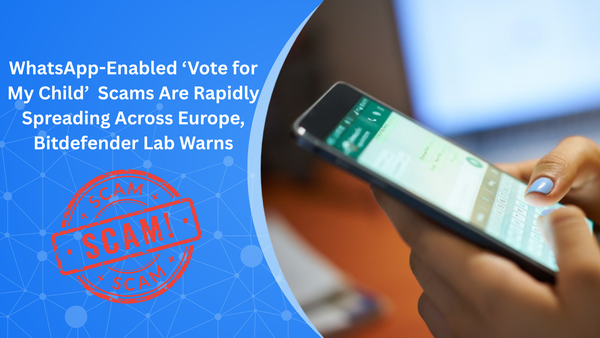‘Missed Jury Duty’ Call? Email Demanding Payment? It's a Scam, the FTC warns

The panic you feel when you get a phone call or email saying you missed jury duty is exactly what scammers count on. Missed jury duty scams prey on people's fear of legal trouble and confusion over how jury duty works. If you’ve received a message telling you that you owe a fine, or that an arrest warrant has been issued because you failed to show up for jury duty, take a deep breath—it’s most likely a scam.
How ‘Missed’ Jury Duty Scams Work
Scammers use several tactics to trick victims into thinking they are in trouble with the law. The following steps outline their typical strategy:
- Initial Contact:
- You receive a phone call, email, or even a text from an individual claiming to be from your local courthouse, the police, or federal authorities.
- The scammer claims you missed a scheduled jury duty appearance and must face penalties.
2. The Threat:
- The scammer typically claims you’ll be arrested, fined or face legal action if you don’t pay a fee immediately. The perp may also say your driver’s license will be suspended if you don’t pay.
- In other scenarios, the scammer will say that a warrant for your arrest has already been issued and claim you can resolve the matter on the spot if you agree to pay
3. The Urgency:
- Scammers pressure you to act quickly, giving you little time to think rationally or verify any of their claims, and threatening that law enforcement is already on its way or will show up at your door unless you pay on the spot.
4. The Payment Demand:
- Scammers will ask for immediate payment to “settle the issue,” claiming it’s the only way to avoid arrest or penalties. They often ask for payments in gift cards, prepaid debit cards, cryptocurrency, or wire transfer services such as Western Union and MoneyGram—all of which are difficult to trace or reverse.
According to an alert from the Federal Trade Commission (FTC), scammers may also ask for personal details like your Social Security Number or other sensitive information, increasing the risk of identity theft. The FTC emphasizes that legitimate courts never call or email asking for sensitive personal information or immediate payments through non-traditional methods. The agency advises people to hang up and report such incidents immediately to help curb the spread of this scam.
Here are some recent examples of missed jury duty scams reported via the BBB Scam Tracker:
“A man who identified himself on the phone as [redacted], with a southern accent, told me I had missed Grand Jury Duty at the District Courthouse and a warrant for my arrest was being summoned. In order to stop the arrest I would need to fill out paperwork he would email me then go in person to some place to verify my signature.,” one victim said. “I was feeling suspicious & asked ‘How much do I owe you for missing jury duty?’ I was told I'd need to send him a voucher through the email for $2,500 to stop the warrant.”
In another version of the scam, the scammer wanted to set up a Zoom call for victim could explain to the judge why they missed jury duty. The scammer also said they were having some “problems with USPS” and that they “would file a claim with them for mail fraud since someone else had signed and returned the jury duty form.
“Told him I would call the Court House about it and then he said it was a Federal case so the local court house wouldn't have any information on it. His job was to be the liaison to the court so that they would stop the warrants for my arrest. Told him I would call the court house and hung up,” the victim explained. “Called court house which said I should call Sheriffs office to verify if any issues. There were none. Scammer.”
Related: Beware the Gavel: Unmasking Jury Duty Scams and Shielding Your Rights
How Scammers Try to Fool You
Missed jury duty scams work because the threat of missing a legal obligation feels real and people are often unfamiliar with how jury duty procedures actually work. Here are a few tactics they use to add legitimacy to their scam:
- They spoof caller IDs: Scammers can manipulate caller IDs to make it look like the calls are from your local courthouse or police department.
- They may use official-sounding names and titles: Scammers use the names of real judges, clerks, or police officers in your area to make the threat seem more convincing.
- Threaten you with immediate arrest: Scammers create a sense of urgency by claiming law enforcement will show up at your door unless you act fast.
- They use legal jargon: They may throw around legal terms like “bench warrant” or “contempt of court” to sound credible and confuse you.
What Really Happens If You Miss Jury Duty
Missing jury duty is not as serious as scammers want you to believe. While it is an important civic duty, the real consequences for failing to appear are generally much less severe than the scammers claim.
Here’s what actually happens if you miss jury duty:
- You receive written notice. If you miss your scheduled jury duty, the courthouse will send a written notice to the address you provided during registration. This notice will usually explain that you missed your date and provide instructions on rescheduling or corrective action.
- Rescheduling may be an option: In most cases, you’ll be given an opportunity to reschedule your jury duty date. Courts understand that emergencies happen, and they are often flexible in case of scheduling conflicts or genuine mistakes.
- There is no immediate arrest or fine if you miss jury duty: Courts will not issue immediate arrest warrants or demand instant payments over the phone. You will not be arrested for simply missing your jury duty date. You will likely have multiple opportunities to correct the situation before any serious consequences are imposed.
- Failure to respond: The situation will escalate only If you ignore or don’t reply to multiple notices and fail to contact the court. You may be held in contempt of court, which could result in fines of up to $2,000 or, in rare cases, a bench warrant for your arrest. However, even then, these consequences are a result of continued non-compliance, not a one-time absence that can be resolved by contacting the court and rescheduling.
How to Protect Against Missed Jury Duty Scams
Here’s what you can do to avoid falling victim to the jury duty scam:
- Hang up or delete the message: If you receive a call or email claiming you missed jury duty and must pay a fine, don’t engage with the scammer. Simply hang up or delete the message.
- Verify claims: Contact your local courthouse directly using an official phone number to verify if you have indeed missed jury duty. Don’t rely on the contact information provided by the scammer.
- Never pay over the phone: No legitimate court will ever ask you to pay over the phone or through unconventional methods like gift cards, wire transfers and cryptocurrency.
- Report scams: If you’ve been targeted by a jury duty scam, report it to the Federal Trade Commission (FTC) and your local authorities.
- Have a chat with Bitdefender Scamio, our AI-powered scam detector, to help you determine whether jury duty related-message is a scam. Simply describe the message or request, and Scamio will analyze the information and respond. Scamio is available on Facebook Messenger, WhatsApp, and your web browser. You can also help others stay safe by sharing Scamio with them in France, Germany, Spain, Italy, Romania, Australia, and the UK.
tags
Author
Alina is a history buff passionate about cybersecurity and anything sci-fi, advocating Bitdefender technologies and solutions. She spends most of her time between her two feline friends and traveling.
View all postsRight now Top posts
Recruitment Scam Alert: Fraudsters Impersonate Bitdefender in Fake Job Interviews
October 13, 2025
What are Roblox Executors and Why Do Parents Really Need to Know About Them
October 10, 2025
How to Outsmart Today’s Sneakiest Phishing Scams
October 10, 2025
FOLLOW US ON SOCIAL MEDIA
You might also like
Bookmarks







